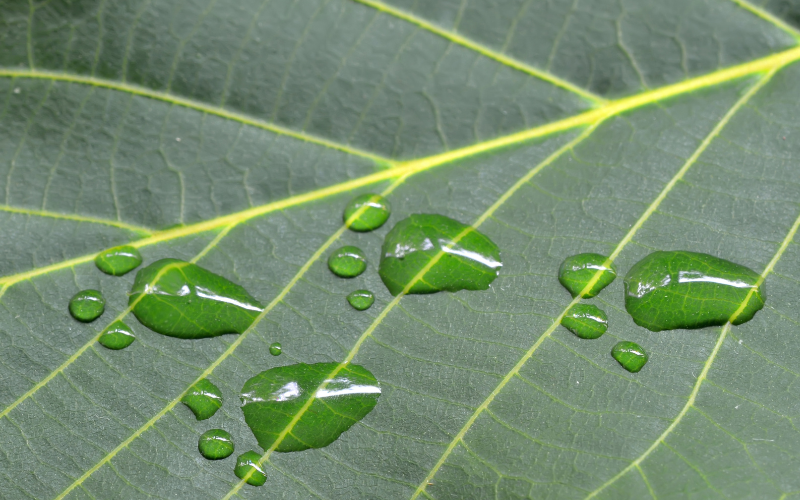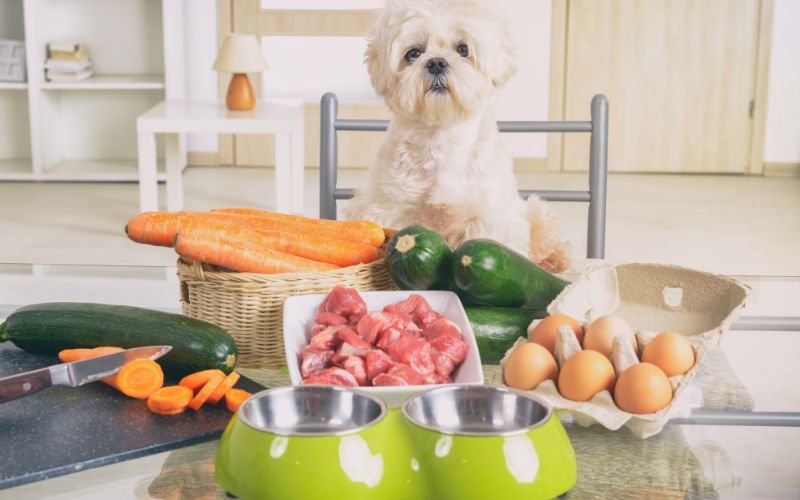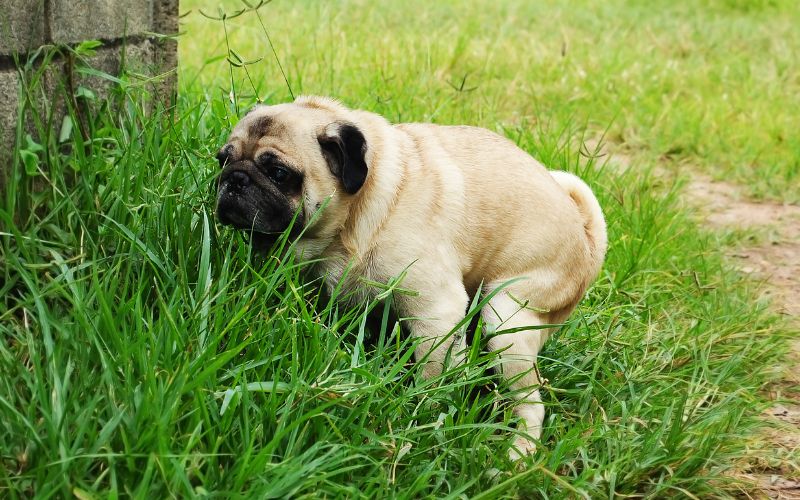What does it mean to be an ethical pet owner in the modern day? It’s a question that many of us struggle with, thinking of how we can reduce our environmental impact whilst still offering our dogs the best quality of life possible.
As pet lovers, of course our dedication extends beyond simple cuddles and daily walks; our responsibilities also encompass providing a sustainable and ethical lifestyle for our canine companions. Whether it’s the healthcare products we purchase being biodegradable or recyclable, or the food we choose to feed our pets coming from ethical and sustainable sources…
There’s a whole variety of considerations we need to make. And it’s not always easy - not whilst juggling the economic pressures we’re all increasingly experiencing.
So, how do we pave the way for sustainable canine companionship? What does it mean to be an “ethical” pet owner or have an eco-friendly dog anyway, and how can we take steps towards protecting the future of our - and our dogs’ - planet?
In this blog, we’re going to explore the evolving landscape of ethical pet ownership, particularly focusing on sustainable practices, alternative diets, and reducing our furry friends' environmental pawprint.

Understanding Ethical Pet Ownership
It’s not necessarily a straightforward thing to be - 100% ethical, 100% of the time. Because sadly, western structures are predominantly not set-up to serve our ethics, but instead to focus more on generating sales and profit.
However, when it comes to ethical pet ownership itself - this isn't just about fulfilling the basic needs of our pets; it's about ensuring their wellbeing while being mindful of the larger ecological impact.
It involves making informed decisions that prioritise the health and happiness of our pets without compromising the environment. This approach encompasses choices in food, lifestyle, and consumption habits that reduce the carbon pawprint of both us and our canine companions.

Diverse Approaches to Sustainable Canine Diets
A large topic within the overarching discussion of ethical pet ownership is about what we feed our dogs - what is sustainable and what is less so.
Various schools of thought exist regarding the most ethical and sustainable approach to feeding our canine friends. And we’re not here to point fingers or condemn what you’re currently feeding your dog, but to rather highlight the possibility of exploring alternative options when it comes to your choice of dog food. Especially when it comes to trying out more sustainable diets for dogs.
For example, you may have personally noted the emergence and increasing popularity of flexitarian diets for dogs, which incorporate plant-based alternatives alongside minimal animal proteins. Not only can this aid the reduction of meat consumption caused by feeding our dogs meat-heavy meals, but it can also be somewhat kinder on the wallet too.
Additionally, many pet parents have begun exploring alternative protein sources for dogs, such as insects or lab-grown meats. Indeed, this does indicate intriguing possibilities for more sustainable dog diets emerging in 2024.
Essentially, these alternative dog diet approaches aim to reduce the reliance on traditional meat-based diets, such as beef, chicken and pork, to ultimately lessen the environmental impact of pet food production.
Of course, there’s a long way to go when it comes to the inclusiveness and accessibility of these diets, with some of these new dog diet options potentially being too expensive for pet parents to sustain. However, it can also be seen as a step in the right direction, where the pet food industry is increasingly acknowledging and responding to the demand from pet parents - for food options to become more innovative and eco-aware, and less reliant on traditional structures.
If you currently homecook your dog’s meals, it may be something you’re personally interested in. Exploring alternative protein sources within your dog’s meals or alternatively following a more flexitarian diet could be viable options, depending on your set-up. Whatever you choose to follow for your own dog’s diet, just remember that ensuring they receive a balanced and nutritious diet is vital. And if you’re at all worried that your dog is not receiving all the nutrients they need from a varied diet, you can always consider Wellbeing Essentials Complete 22 to help bridge that gap.
Please note that we also suggest reducing the amount of meat consumption in your dog’s diet, primarily to help reduce the environmental impact caused by meat production.

Wellbeing For Dogs: Our Own Eco-Conscious Aims
It’s our own goal to honour the eco-conscious values that pet parents share. To support a future where pet ownership is more ethical, self-aware and set-up to support the world (and our pets) to thrive rather than simply survive.
We are huge advocates for sustainable pet guardianship, and are constantly looking for ways to improve our own operations and offerings to align with this vision for the future of pet care. For example, the ingredients included in our Wellbeing Essentials Complete 22 blend are sourced from carefully vetted suppliers and we specifically order in bulk in an aim to minimise any CO2 emissions caused by their transport to our production warehouse. We also hand blend each batch to ensure the consistency and quality of our nutritional balancer too.
What’s vital for us is continuing to promote responsible pet ownership without compromising on the quality of our products. Your dog’s health and wellbeing is always going to be our top priority, and we know that working to also protect the future of the world plays an integral part in this.

Practical Tips for Ethical and Sustainable Pet Parenting
Are you personally searching for ways to become a more sustainable pet parent? Interested in exploring new ways to become more environmentally friendly when caring for your dog? Want to learn how to reduce your waste as a dog owner?
Firstly, we congratulate you for taking this step to self-reflect and consciously make this choice to change. Because often the way to become a more ethical pet parent simply involves making proactive, self-aware changes and choices in our daily routines.
With that said, here are some practical tips for reducing our dogs' environmental impact:
Opt for Sustainable Diets
- Consider exploring alternative food options for your dog - such as incorporating more vegetables into your dog’s meals and trying out different protein sources. Likewise, homemade meals can help reduce any unnecessary waste when creating your dog’s food.
- Choose pet food brands that prioritise sustainable sourcing and production methods. This information should be highly visible on their website and/or packaging, and if it isn’t - try researching different brands who are following these practices.
- Consider making homemade treats using locally sourced ingredients from traceable sources.
- As much as possible, use protein from sustainable farming practices.
Reduce Waste
- Use biodegradable poop bags or compostable alternatives to minimise plastic waste.
- Avoid overbuying pet food and store it properly to reduce food waste.
- Choose products with minimal packaging and recyclable materials - such as cardboard.

Eco-Conscious Purchases
- Select eco-friendly dog toys/accessories made from sustainable or biodegradable materials - for example, items made from recycled plastic, sustainably-sourced organic cotton, rubber, hemp rope, natural cruelty-free fur, bamboo fibre or other materials.
- Use reusable bowls and grooming tools instead of disposable ones.
- Opt for pet-safe and environmentally friendly cleaning products. For example, excellent natural alternatives for cleaning your dog’s space include vinegar and baking soda.
Mindful Outings and Exercise
- Choose Eco-Friendly Gear: Use eco-friendly and sustainable pet gear such as leashes, harnesses, and collars made from recycled materials or sustainable fabrics.
- Explore Nature-Friendly Activities: Engage in outdoor activities that have a minimal environmental impact, like hiking on designated protected trails or visiting environmentally conscious dog parks that have lots of accessible dog poo bins.
Prioritise Health and Preventative Care
- Preventive Healthcare: Focus on preventive healthcare to reduce the environmental impact caused by reactive medical treatments. Regular veterinary check-ups, titer testing/vaccinations, and maintaining a healthy diet can help contribute to a healthier dog and protected environment.
- Sustainable Grooming: Use grooming products that are gentle, biodegradable, and sustainably produced. Consider eco-friendly grooming tools and shampoos that are free from harsh chemicals.
Implement Energy-Saving Measures
- Energy-Efficient Appliances: Choose energy-saving pet care equipment, such as low-energy consumption water fountains or feeders.
- Reduce Electricity Use: Turn off unnecessary electrical devices like heating pads or cooling fans when not in use to conserve energy.
Educate and Share Knowledge
- Spread Awareness: Educate fellow pet parents about the importance of ethical and sustainable pet parenting. Share tips and resources with any social media groups you’re a part of, or any local dog owners you connect with on dog walks.
- Lead by Example: Be an advocate for ethical pet ownership by showcasing your sustainable practices and helping your friends and family to try out new approaches too. Use birthdays and Christmas to gift eco-friendly pet parents, as an example.
Some of these tips may seem obvious, or the benefit may not appear immediately obvious. However remember that each small change adds up, and collectively, they can pave the way for a more sustainable future for our canine companions.
Ultimately, by implementing these practices, us pet parents can contribute to a more sustainable future while ensuring the continued wellbeing of our dogs.

In Conclusion: How to be an Ethical Pet Parent
There’s no “right way” to be ethical as a pet parent. Most likely, there are always things you “could” be doing better or “should” be doing to help reduce your dog’s environmental impact. But as we mentioned before, we’re not here to judge or condemn the way you choose to care for your dog.
Rather, we wanted to explore this topic today to highlight the importance of being aware of our consumption as pet owners and to explore different ways of doing things - to help reduce our waste, and be proactive in caring for our pets’ healthnowso the planet doesn’t feel the impact later on.
In short, we believe that the future of ethical pet ownership is intrinsically tied to sustainability and conscientious decision-making.
We hope to continue helping pave the way for eco-conscious pet care, and continue to encourage every simple member of our community to play their part by adopting mindful practices in their pet parenting journey.
Embracing sustainability in pet ownership not only benefits our four-legged friends but also contributes positively to the planet we all call home. As responsible pet owners, it’s up to us to continue championing a more ethical and sustainable future for our beloved canine companions.



